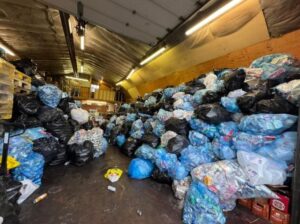by Susan Hofforth
The World Meteorological Organization reported last week that the concentration of greenhouse gases and CO2 in the atmosphere surged at record speed in 2016 and is now higher than ever at the end of 2017. It seems like there were few places lately that didn’t experience a worst ever weather event of some kind this summer. There were floods, wildfires, category 5 hurricanes that destroyed entire communities, earthquakes, mudslides and the aftereffects of all of them that are difficult to recover from, and costly even now. And all this is after our awareness has been raised, and almost all experts agree that the science is sound, and yes, it is our activities that are the cause. It seems that over the next 100 years, we will be leaving our children with a much less hospitable planet. We understand this, and yet, it still seems like there is nothing we can do.
Donald Trump pulled out of the Paris Agreement earlier this year saying that the agreement was useless. It did nothing to help the US and would make only a ‘teeny-tiny’ difference at a huge cost. What that really meant was that it was hurting American interests and stopping his campaign contributors from making a profit. Whatever we do, it is a huge cost; we keep hearing that we have to do more, and use more renewable energies, but these too are unaffordable and out of reach and they don’t always work as expected. But there are also the costs of not making the changes quickly enough.
It is going to be a challenge to face into the future, but we have seen what we can do as human beings when we care. As Erik Solheim, head of UN Environment Programme says, “We have many of the solutions already to address this challenge. What we need now is global political will and a new sense of urgency.”
Environment Canada is already offering insights and ways to help Canadians adapt by adjusting our decisions or activities and our way of thinking so that we can find ways to reduce the harm, and find new opportunities. “By making informed decisions,” says canada.ca on their climate change page, “we will be able to avoid certain costs associated with climate change.” They mean that if we plan for disaster, we can meet it and reduce its risk.
There is hope, but it requires huge sacrifices to our life and perhaps to our livelihood, but more so if we are not prepared, and if we are not talking about what may be coming ahead and how we can meet it.







More Stories
Whitecourt Minor Ball hits a home run with bottle drive
Rising tariffs, skyrocketing duties and an Albertan forestry industry in need of support at home